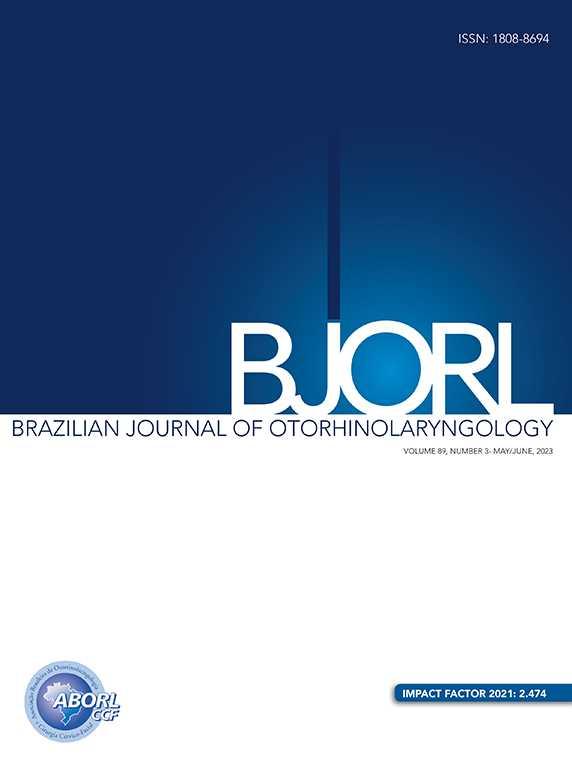
Objectives: The present work aims to establish a directed view of the impact of the meditative practice of mindfulness on the condition of chronic tinnitus and the relationship of the patient with this condition, seeking to quantify and correlate the access to practice with the indices of improvement and perception of tinnitus at different moments of treatment.
Methods: The research methodology was based on the follow-up, through an online platform, of a group of patients recruited from the diagnosis of tinnitus in the city of São João Del Rei (MG), who received the treatment for eight weeks. In this sense, the inclusion criteria were adulthood, diagnosis of chronic, non-rhythmic, subjective, primary cause tinnitus, and absence of concomitant treatment. Mental disability and a history of unstable psychiatric conditions one year before the beginning of the study were adopted as exclusion criteria. The THI (Tinnitus Handicap Inventory) questionnaire was applied, translated into Portuguese, before the beginning of treatment, shortly after the end of treatment, and two months after mindfulness therapy to evaluate the short and long-term consequences of this practice of mindfulness for the tinnitus problem of patients.
Results: The THI questionnaire considers the emotional (how much tinnitus is associated with feelings of frustration), functional (how much this condition limits the activities of the individual), and catastrophic (how impotent the patient feels) about tinnitus. Thus, it can be inferred that the higher the final sum of the score, the more the picture impairs the patient's quality of life. Comparing the general impact of the meditative practice on tinnitus from the sum of the points of each participant, there was a decrease in the mean total score of the participants between the pre-protocol moment and immediately after, with a reduction in the mean total score of 11.67 points. In addition, within this same scope of analysis, data homogenization is observed with the reduction of standard deviation (SD) by 7.28 points, from 19.73 to 12.45. When analyzing the means of the total scores between the moments “immediately after” and “2 months after”, there is an increase of this average by 1.67 points, but with a new reduction in SD by 0.36 points, indicating more homogenization of the scores. We also individually analyzed the emotional, functional and catastrophic components, observing a greater homogeneity in the score of the participants in the emotional component.
Discussion: In addition to the quantitative change perceived by the score obtained in the THI questionnaire, it was found, from subjective questions asked to the participants, that daily practice came to become reality for some, while others reported performing meditation punctually at sporadic moments. In this context, all participants expressed themselves very positively about their experience with mindfulness meditation. Thus, it turns out that there was an improvement in most different configurations. While some reported better managing their feelings, such as irritation, others said they had changed their relationship with food, reducing compulsive eating behaviors and the issue of tinnitus. Less anxiety and more patience and self-control were also common feedback between responses.
Conclusion: Although there was no control group in the study, we observed a significant change in the THI score before and after the protocol application. There is a small worsening score after two months, which may reflect the difficulty in maintaining a usual meditation practice after the end of guided meetings. The subjective perception of patients was very positive, bringing positive expectations that the practice of mindfulness meditation can be an effective tool for tinnitus control. The absence of a control group as well as the small sample size makes it necessary to conduct other studies to real prove the benefits of mindfulness meditation in tinnitus.
Keywords: Tinnitus; Mindfulness; Meditation; Quality of life.





